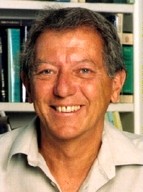 UK's
Chief Science Advisor Writes to Nature. (November 3, 2005)
UK's
Chief Science Advisor Writes to Nature. (November 3, 2005)
|
News & Views item - November 2005 |
![]()
 UK's
Chief Science Advisor Writes to Nature. (November 3, 2005)
UK's
Chief Science Advisor Writes to Nature. (November 3, 2005)
David King is currently Chief Scientific Advisor to H.M. Government and Head of the Office of Science and Technology. When not being a bureaucrat he is Professor of Chemistry at Cambridge working on "understanding at a molecular level the relationship between surface structure and molecular reactivity, focusing on catalysis."
This week Nature publishes correspondence from Professor King as the UK's Chief Scientific Advisor.
He opens:
Your Editorial "Blair's failure" (Nature 435, 129; 2005) refers to a "declining interest amongst the young in science as a
In Australia the position of Chief Scientist is currently vacant.
Dr Robin Batterham was appointed Chief Scientist on 20 May 1999 in a part-time capacity. He resigned from the position on 31 May 2005.
career" and states that the UK
government should either abandon its target of raising research and development spending from 1.9% to 2.5% by 2014, or explain it. I believe that the
UK government must retain this target, as the science and engineering base is vital to future global competitiveness. For example, many wealth-creating, innovative companies will develop from Britain's world-class small high-tech companies.
If the UK government is to achieve its economic and social ambitions, it must maintain a strong, diverse supply of scientists to sustain the research base...
He then analyses some statistics showing that "between 1997–1998 and 2003–2004, the number of people studying science subjects in degree
courses increased by more than 30%, at a time when there was a smaller increase (about 20%) in numbers studying for first degrees overall."
That said there are marked differences between disciplines and King notes that the greatest interest is shown in "biological (including psychology and agriculture) and computer sciences," and if one includes all students, foreign and domestic undertaking degree course in science they increased from 38% to 41% between 1997–1998 and 2003–2004, but "A-level (17-year-old) entries in mathematics, computer sciences, physics, chemistry and biology averaged a decrease of 7.5% between 1997–1998 and 2003–2004."
Finally, Professor King
cites a recent opinion poll by
Market & Opinion Research International![]() which reports that 85% of the population "believe science makes a good
contribution to society," and calls upon the media to acknowledge the fact.
which reports that 85% of the population "believe science makes a good
contribution to society," and calls upon the media to acknowledge the fact.